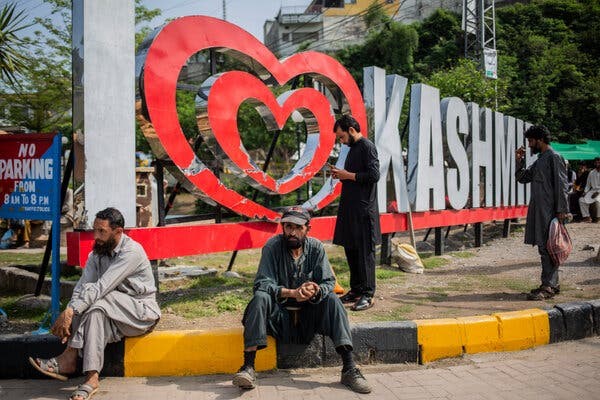As tensions flare between India and Pakistan following a deadly terrorist attack, residents in Pakistan-administered Kashmir brace for the worst. Their daily lives are now marked by fear, uncertainty, and urgent preparations for a potential conflict.
A Region on Alert
In the Pakistani-held section of Kashmir, a sense of emergency hangs in the air. Families are reinforcing underground bunkers. Hospitals are stocking up on essential medicines. Schoolchildren are being taught basic first aid. All of this is in response to fears of a looming military confrontation, sparked by a deadly attack two weeks ago in Indian-administered Kashmir that killed 26 civilians.
“We Have Seen This Before, But We’re Still Afraid”
“God willing, nothing will happen,” says Azeem Gilani, a baker in Muzaffarabad. “We have seen this before. But if, God forbid, the situation worsens, Kashmiris on both sides will suffer.” His words reflect a weary resilience shared by many who have endured multiple waves of cross-border violence over the decades.
Escalation Fears After the Attack
Following the attack, Indian Prime Minister Narendra Modi vowed “severe punishment” for those responsible, hinting at Pakistan’s involvement. Pakistan, in turn, warned of a possible Indian strike, citing “credible intelligence,” and promised a strong response. The political rhetoric has left Kashmiris—particularly those near the Line of Control (LoC)—feeling like they are caught in a dangerous crossfire.
Bunkers and Evacuation Plans
Residents like Mr. Ahmed in a border village have started reinforcing their mud-walled bunkers and drawing up evacuation plans. Yet not everyone has the resources to prepare. “We do what we can,” said one local. “But most of us just pray nothing happens.”
Tourism Industry Grinds to a Halt
Spring usually brings a wave of tourists to Kashmir, boosting the local economy. Last year, over three million visitors came to the region. But this year, the tourism season is virtually dead. Security restrictions, roadblocks, and fear have turned once-crowded destinations—like a famous waterfall near Muzaffarabad—into ghost towns.
Emergency Measures and School Closures
In Muzaffarabad, local authorities have instructed food departments to stockpile supplies for up to two months. While regular schools remain open, madrassas—Islamic seminaries—have been ordered to shut down for at least 10 days, over fears they could be targeted in the event of an airstrike.
A History of Conflict and Unresolved Claims
The roots of today’s conflict stretch back to 1947, when British India was partitioned into India and Pakistan. Both nations claimed Kashmir, resulting in a war that left the territory divided. Pakistan-administered Kashmir now operates under a semi-autonomous framework, but with deep political and military ties to Islamabad.
Anxieties About the Future
Decades of war, insurgency, and political instability have left scars across Kashmir. A fragile peace in the 2000s gave way to renewed tensions in recent years, and analysts fear that last month’s terrorist attack could reignite broader unrest.
For now, the people of Pakistani-administered Kashmir can do little but prepare—and hope. As one resident said, “We don’t want war. We want to live, to work, to raise our children in peace. But peace feels very far away right now.”









